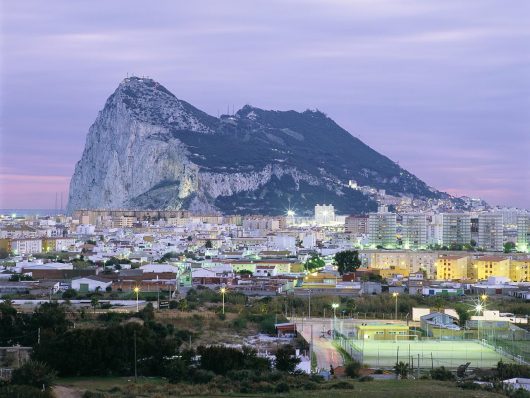Hunger in Gibraltar No Longer a Problem
 Twenty-first-century Gibraltar is drastically different from what it was just thirty years ago. According to the CIA’s World Fact Book, the self-sufficient British Overseas Territory benefits from an extensive shipping trade, offshore banking, its position as an international conference center and tourism, among many other economic drivers. Low tax rates have also attracted plentiful foreign investment, driving British military presence to decrease to seven percent from the original 60 percent in the mid-1980s and hunger in Gibraltar to near dissolution.
Twenty-first-century Gibraltar is drastically different from what it was just thirty years ago. According to the CIA’s World Fact Book, the self-sufficient British Overseas Territory benefits from an extensive shipping trade, offshore banking, its position as an international conference center and tourism, among many other economic drivers. Low tax rates have also attracted plentiful foreign investment, driving British military presence to decrease to seven percent from the original 60 percent in the mid-1980s and hunger in Gibraltar to near dissolution.
Although no data exists to date for the percentage of Gibraltar’s 34,408 citizen population living below the international poverty line, the territory’s unemployment rate was listed as one percent in 2016, suggesting that Gibraltar has come a long way since the 19th century, when malnutrition, disease and economic instability were widespread. With improvements in the economy, poverty and hunger in Gibraltar have naturally become less and less concerning.
Gibraltar is currently a member of the European Union as a Special State territory, joining the European Economic Community under the United Kingdom in 1973. Despite its membership, Gibraltar is not subject to the same taxation requirements as other members. As a result, the territory has no capital gains tax, wealth tax, sales tax or value added tax. Non-resident businesses do not pay income tax unless the sources of this income are Gibraltar proper, and there is no tax on capital income. This plethora of “tax-free” conditions has made international trade a large player in the Gibraltarian economy, as non-resident companies can take advantage of such regimes to reduce taxation.
With recent Brexit developments, however, a debate over Gibraltar’s continued status as a member of the EU has arisen. Over 96 percent of the territory’s population voted to remain in a referendum held in June 2016 on the issue of continued EU membership. Since the referendum, Spain has offered a plan to keep Gibraltar in the EU on the condition that Madrid shares sovereignty over Gibraltar with London. Gibraltarian citizens overwhelmingly rejected the proposal.
Gibraltar currently benefits from the tourism industry and trade with Spain through its membership in the EU. Not only would leaving the EU mean leaving the European common market, a risky move for an extremely dependent territory like Gibraltar, but Spain’s economy would suffer as well. In 2007 alone, Gibraltar imported more than £174 million of goods and services from Spain, excluding petroleum imports, and enabled both Spanish and Gibraltarian frontier workers to earn £82.8 million from within the economy of Gibraltar.
On the surface poverty and hunger in Gibraltar may no longer be major issues of concern, but looming economic policy decisions could drastically change and shape the future of the territory.
– Katherine Wang
